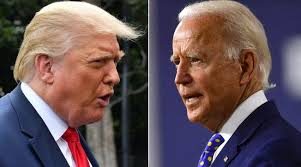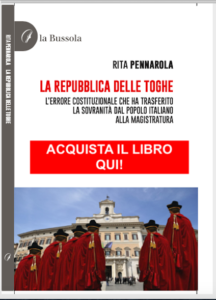Vince Biden? Trionfa Trump?
Per ora c’è un grande sconfitto. Anzi due.
Social & sondaggi. Che hanno toppato in modo che più clamoroso non si può, qualunque sia alla fine l’esito delle presidenziali Usa.
Escono con le ossa totalmente rotte Facebook e Twitter, che hanno pesantemente favorito il candidato democratico (sic) Joe Biden, censurando – incredibile ma vero – i messaggi trumpiani.
Una discesa in campo plateale, che non ha precedenti nella pur fresca storia mediatica a stelle e strisce.
E perdono quel residuo di faccia di bronzo rimasta i sondaggisti yankee, che da mesi strombazzano quel 10-15 per cento di vantaggio pro mister Biden, tanto per rincoglionire meglio i cittadini e cercare di scoraggiare la corsa alle urne, facendo intendere che il risultato è ormai scontato.
Un taroccaggio in piena regola, dati e previsioni buttati lì senza il minimo criterio, celebri antenne tivvù che si prestano al gioco e non hanno il minimo pudore nel tirare cifre al vento, numeri al lotto, senza neanche palesare il minimo senso e segno di vergogna.
Alla faccia della democrazia negli States!
Alla faccia di quell’informazione libera e indipendente!
Alla faccia della Silicon Valley che avrebbe dovuto portare tecnologie e progresso!
Una Silicon che non è stata neanche in grado di studiare e mettere in campo sistemi e modalità di voto da paese civile, e non da tribù sparse e disorganizzate in tutti gli Stati, come nel più incredibile feudalesimo globalizzato.
Sorgono infatti spontanei alcuni interrogativi.
Come è possibile che un voto così importante come quello presidenziale Usa sia addirittura cominciato un mese fa?
Come è possibile che due giorni fa avessero già votato oltre 90 milioni di americani?
Come è possibile ricorrere in modo così massiccio, condizionante e poco trasparente al voto postale?
Ma dove siamo? In una foresta amazzonica dove fanno più presto a votare con i piccioni viaggiatori?
Ancora. Come è possibile non aver previsto uno spoglio in tempi decenti? Perché ci vogliono ancora ore e forse giorni?
A parte poi la prevedibile valanga di ricorsi, che rischia di rimandare all’anno prossimo l’esito finale.
E’ questa una democrazia, anche solo sotto il profilo formale?
A seguire potete leggere l’intervento, scritto per il New York Post, da John Podhoretz, titolato “The pollsters were wrong again – Why do we listen to them?”, ossia “I sondaggisti hanno sbagliato ancora una volta – Perché li stiamo ad ascoltare?”.
Every single major election year, they do it to us. They offer us numbers, and people interested in politics mainline them like heroin. We’re soothed. We’re calmed. Soon we are hungry for more, more, more. By election night, we junkies end up fried, damaged, and in need of rehab.
It’s time to go cold turkey before our last brain cells are destroyed.
Donald Trump won Florida by 3.5 points. In 2016, he won Florida by 1.1. Last night he tripled his margin of victory. And the polling? The final 538 average had Joe Biden winning Florida by 2.5 points. It was off by 5.
You’ll hear people say this is a normal polling error, not a systemic failure. Bullbleep. This is the third race in a row (presidency 2016, governor and Senate 2018, and this) in which Florida polling was almost comically wrong.
That Florida disaster is mirrored in a longer and deeper national story. We’ve lived through a series of national elections in which we were sold a bill of goods — about the Obama re-election in 2012, about the Senate in 2014, about the Trump-Clinton contest in 2016 and about control of the House in 2018. Most polls got all these wrong too.
And yet we fell for their crap again.
But it’s less like the physics that helps us shoot rockets into space and more like the set of the spaceship on “Star Trek.” It’s shiny. It has a lot of dials and lights. Things beep. But if you put it on the Cape Canaveral launchpad and lit it on fire, you would just burn to death.
We should have known better than to listen. But we were lulled by the terminology devised by the lousy writers who control the nonsense language of social science — by the “95 percent confidence intervals” and the “margin of error” and “non-response bias.”
This is the kind of argle-bargle that phrenologists must have used to dazzle 19th-century smart people into believing you could make important determinations about a person’s character from the bumps on his skull.
Why does this matter? Because polling is not only bad for the chattering classes, it’s bad for the country. It is used as a form of psychological warfare. It comforts and strengthens those whose priors are confirmed by the numbers and it depresses and paralyzes those who support candidates or policies the polling says are wrong.
Imagine a world in which polling simply became one of 15 different tools used by politicians. Without being able to gull reporters and other politicians with yummy poll data that cannot be trusted, politicians would be compelled to become persuaders. They would have to take up ideas and argue them determinedly and powerfully over a long period of time and slowly and arduously get people on their side.
And the way we would know if their ideas were working would be how well they convinced other politicians and how voters view the decisions that are made as a result of those ideas being put into practice.
It sounds like a ludicrous fantasy. But why, after all this, would anyone ever again listen to a pollster?
Why?




































